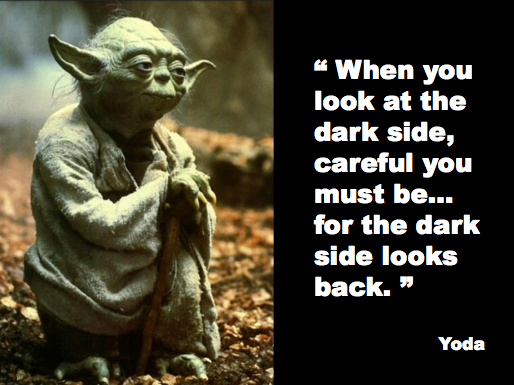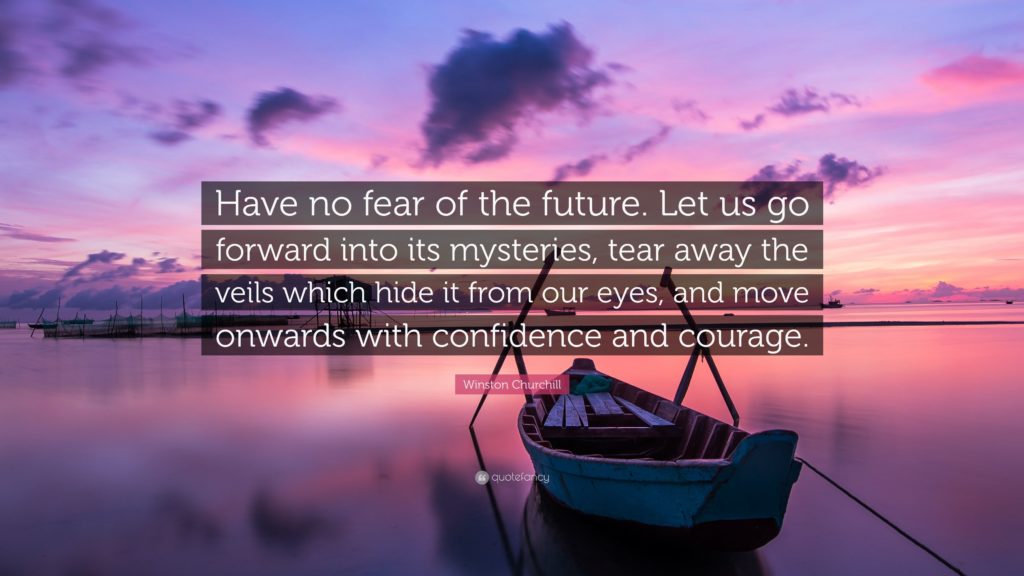
Having a fear of the future has become common in our fast-changing society. Learning how to manage it is crucial to our wellbeing and success. Using these four techniques will hep you overcome any worry and doubt you have about what lies ahead of you. (Estimated reading time: 5 minutes)
“Don’t shortchange the future because of fear in the present.”
— Barack Obama
Fear of the future can be crippling to inner peace, yet it’s a universal experience. All of us feel it throughout our lives.
Coping with uncertainty is a life skill that has become valuable in the fast-changing world of the 21st century. It is invaluable when it comes to dealing with the ever-changing landscape of society. Those who are comfortable with change and uncertainty will have an edge.
This comes naturally to some because of their personal disposition and upbringing. Publishing in Psychology Today, psychologist Alain Samson wrote that people with a “ high need for certainty, preference for familiarity, etc., are considered to have a high intolerance of ambiguity.”

Our circumstances profoundly impact the severity of our fears. People who aren’t happy with their current place in life tend to experience fears about the future more acutely than those who are content.
The higher our dissatisfaction, the more attached we become to future outcomes. An unhappy single person would be more worried about the outcome of their romantic relationships than a person who loves life, single or not.
Why do we worry about the future, when deep down we know that we seldom have any control over it? According to an article in The Atlantic, one of the reasons we do is simply because we can. In the article, Dan Grupe, a research associate at the University of Wisconsin-Madison’s Center for Investigating Healthy Minds said that uncertainty causes more stress in humans, compared to other animals, because we have this cognitive ability.
“In other animals, unpredictability or uncertainty can lead to heightened vigilance, but I think what’s unique about humans is the ability to reflect on the fact that these future events are unknown or unpredictable,” Grupe said.

Uncertainty around employment has escalated over the years, and people have resorted to different ways of coping with the stress.
One of the most common is consuming anti-anxiety medication. In 2018, more than 40 millions adults suffered from anxiety which fueled a 67% increase in medication prescriptions since the previous year.
Another way people are coping is by literally looking into the crystal ball. According to a Pew survey in 2019, 15% of Americans have consulted fortune-tellers and psychics. The growing popularity of the U.S. psychic industry has resulted in a growth of 52% since 2005, to reach $2.2 billion in revenue by 2018. More and more people are looking to these seers for the assurance they provide in their predictions.
However, most coping techniques are crutches that temporarily resolve the symptoms of anxiety instead of getting to the root of the issue. If we are to make peace with the future, we need to find natural and holistic ways to cope with our anxiety.
Fortunately, there are plenty of tools and techniques that we can use to manage our worries. Here are four ways to manage your fears of the future:
1. Quieten the monkey mind: Everything begins with a thought. When we become identified with our thoughts, they overwhelm us, and we feel out of control. According to spiritual guru, Eckhart Tolle, the key is detaching and realizing that we are not our thoughts, rather, we are the presence behind them. You can prevent yourself from spiraling into negative feelings about the future if you can step out of the drama in your mind and simply observe. In addition to present moment awareness, you can cultivate mindfulness practices like deep breathing, meditation, listening to music, journaling, walking, and exercise.
2. Focus on what you can control, let go of what you can’t: Fear about the future is ultimately a fear of loss of control. On some level, we believe that worrying about the future will give us some form of control over it. Of course, it doesn’t change a thing. In fact, it makes things worse. All we can do is try our best each day and surrender the rest. Try noting down all the things you can’t control (other people’s reactions and decisions, the weather, politicians, etc.) and the things that you can control. Create a strategy that you can carry out regularly. You’ll find that having a solid and well-thought-out plan helps ease your worries.
3. Change your relationship with the unknown: Because of our instinctive need for survival and safety, we crave certainty. This need grows stronger as we age because of the obstacles we face. We can override this by changing how we perceive the unknown. One way you can do this is by cultivating a childlike sensibility. Kids experience wonder and surprise moment-to-moment, without worrying about what might come next. You can transmute your fears into alertness to prepare for the future, like a squirrel that stocks up on nuts for an upcoming winter. Another technique that worked for me was finding an avatar, like Captain Jack Sparrow from Pirates of the Caribbean, who saw his future with a sense of adventure and excited anticipation.
4. Visualize and imagine the best outcome: While “thinking positively” may be hard to do at times, what we can do is set aside some time to deliberately think about a favorable outcome to what you want. Law of attraction experts have affirmed the magical-like effects of a visualization practice, in which you immerse yourself in the emotions and feelings of success, even before it happens. Visualization is more than just daydreaming. It’s projecting the future that you want to manifest. Listening to inspiring music and guided visualization can add potency to your practice.
What will ultimately liberate us, is knowing that even if things don’t work out as we hoped, we will be okay. As long as we feel strong within, we can overcome any disappointment. As long as we have courage, we can keep going. As long as we have wisdom, we’ll have the ability to use the lessons we learned to create a brighter and better tomorrow.
All my best on your journey,
Seline

Question for you: Do you have any fears about your future? How do you usually cope with your fears? What will you do differently now?
Did you like this post? Sign up below, and I’ll send you more awesome posts like this every week.

Right now my biggest fear for the future right now is simply keeping my family healthy and alive during this COVID19 crud. My husband is a high risk right now, our son has many risk factors, and my own health is bad enough to put me at risk. It is hard living like this and I am just trying to take it one day at a time and find ways to keep pressing onward and move ahead and do what I can for my family.